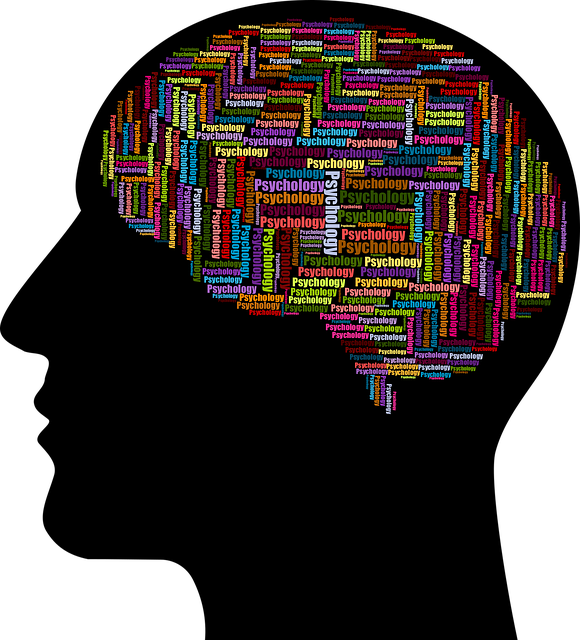Emotional intelligence (EQ), a core focus at Lone Tree Neuro Disorders Therapy, equips individuals with self-awareness, empathy, and effective communication skills to navigate life's complexities. By cultivating these abilities, clients enhance their mental well-being, build stronger relationships, and develop crisis intervention strategies. Lone Tree Neuro Disorders Therapy emphasizes empathic connections between therapists and clients, fostering trust and personalized care that considers diverse backgrounds. Mindfulness practices, such as deep breathing and meditation, further boost EQ by improving present-moment awareness, emotional regulation, and conflict resolution skills, ultimately promoting overall well-being.
Emotional intelligence (EI) is a powerful tool for personal growth and effective interactions. At Lone Tree Neuro Disorders Therapy, we believe building EI is foundational to fostering self-awareness, understanding others, and managing emotions effectively. This article explores key aspects of emotional intelligence development, including the role of empathy, communication strategies, and mindfulness techniques. By mastering these skills, individuals can enhance their relationships, make better decisions, and lead more fulfilling lives.
- Understanding Emotional Intelligence: The Foundation of Self-Awareness
- Unlocking the Power of Empathy: Bridging the Gap Between Individuals
- Effective Communication Strategies for Enhanced Emotional Connection
- Practicing Mindfulness and Regulation Techniques for Better Emotional Intelligence
Understanding Emotional Intelligence: The Foundation of Self-Awareness

Emotional intelligence (EQ) is a vital skill that enables individuals to understand and manage their own emotions while recognizing and empathizing with others’. This concept forms the foundation for effective communication, robust relationships, and successful navigation through life’s challenges. At Lone Tree Neuro Disorders Therapy, we emphasize EQ development as a key component of holistic well-being, helping clients foster resilience against burnout prevention and enhance their overall mental health.
Self-awareness is a cornerstone of emotional intelligence. It involves recognizing your emotions, understanding the reasons behind them, and discerning how they influence your thoughts and behaviors. Through increased self-awareness, individuals can gain profound insights into their unique emotional patterns, triggers, and strengths, empowering them to make conscious choices in various aspects of life. This awareness is crucial not only for personal growth but also for improving interactions with others, thereby contributing to the development of meaningful relationships and enhanced public awareness campaigns.
Unlocking the Power of Empathy: Bridging the Gap Between Individuals

Empathy serves as a powerful tool in fostering meaningful connections and understanding between individuals, a crucial aspect often emphasized by Lone Tree Neuro Disorders Therapy. It transcends mere sympathy, encouraging professionals in mental healthcare to walk a mile in their clients’ shoes. By cultivating empathy, therapists create a safe space where clients feel heard, validated, and truly understood. This profound connection is essential for building trust, enhancing therapeutic alliances, and ultimately improving treatment outcomes.
In the context of risk management planning for mental health professionals, cultural sensitivity, and emotional regulation, empathy becomes a bridge that narrows differences. It allows healthcare providers to tailor their approaches, considering diverse backgrounds, experiences, and emotional states. This personalized care not only improves client satisfaction but also facilitates more effective risk assessment and management, ensuring a holistic approach that addresses both the mind and heart.
Effective Communication Strategies for Enhanced Emotional Connection

Effective communication is a cornerstone of building emotional intelligence and fostering deep connections with others. At Lone Tree Neuro Disorders Therapy, we understand the power of words in creating safe spaces for individuals to express their feelings honestly. Through open dialogue, active listening, and empathetic responses, our therapy sessions provide a supportive environment where clients can learn to articulate their emotions effectively. This process not only strengthens relationships but also equips individuals with essential skills for crisis intervention guidance, resilience building, and self-awareness exercises.
By mastering communication strategies, one can create a profound impact on their personal and professional lives. It allows for better understanding, reduces misunderstandings, and fosters an atmosphere of trust. These skills are invaluable in navigating complex social interactions, resolving conflicts, and forming meaningful relationships. Our therapists guide clients towards becoming more attuned to both their own emotions and those of others, thereby enhancing their emotional intelligence and overall well-being.
Practicing Mindfulness and Regulation Techniques for Better Emotional Intelligence

Practicing mindfulness and emotional regulation techniques is a powerful tool for enhancing emotional intelligence. These practices help individuals become more attuned to their feelings and better understand the underlying causes, allowing them to respond rather than react in challenging situations. Mindfulness encourages present-moment awareness, enabling folks to recognize and accept emotions as they are, fostering self-awareness exercises that are essential for emotional intelligence building.
Through regular practice, one can develop a stronger ability to manage their emotional responses, leading to improved self-esteem improvement. Techniques like deep breathing, meditation, and grounding exercises help regulate the nervous system, making it easier to navigate stress and anxiety. Moreover, these practices play a significant role in conflict resolution techniques, promoting healthy interactions and fostering better relationships by enhancing an individual’s ability to empathize and understand others’ perspectives.
Emotional intelligence is a powerful tool for personal growth, fostering healthier relationships, and improving overall well-being. By understanding your own emotions (self-awareness), practicing empathy, and adopting effective communication strategies, you can enhance your emotional connections. Additionally, mindfulness techniques enable better emotional regulation, making it easier to navigate life’s challenges. Lone Tree Neuro Disorders Therapy emphasizes these principles, offering valuable insights into developing emotional intelligence, ultimately leading to a more fulfilling and connected life.














